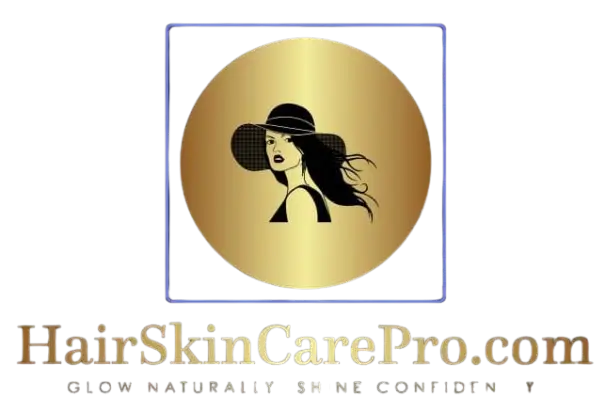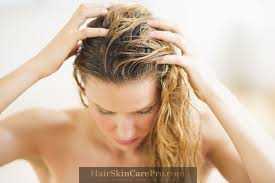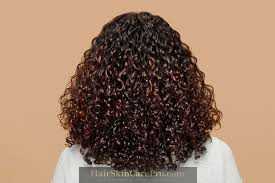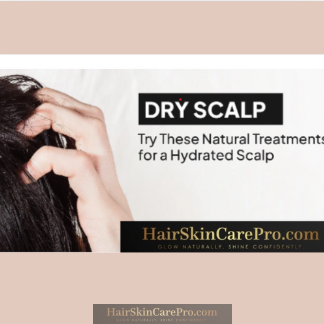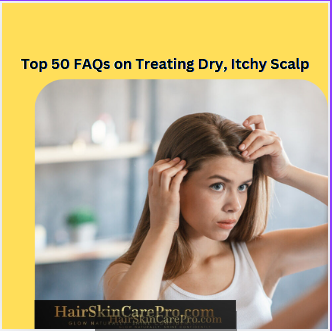Introduction:
Greetings! Today, we delve into a topic often overlooked yet crucial—your scalp health! While we often focus on hair care routines, we sometimes neglect the vital foundation beneath it all. A well-maintained scalp is fundamental for nurturing strong, lustrous hair. Ignoring scalp health can lead to issues like dandruff, irritation, and hair weakening, impacting your appearance and self-assurance. Let’s explore key insights to ensure your scalp is well-cared for!
Understanding Scalp Health:
Before delving into recommendations and techniques, it’s crucial to grasp the fundamentals of scalp health.
Scalp Anatomy:
The scalp comprises more than just the skin beneath your hair, encompassing various layers such as the epidermis and dermis.
- Hair Follicles: Microscopic structures that give rise to individual hair strands.
- Sebaceous Glands: Responsible for secreting sebum, the scalp’s natural oil.
Hair Follicle: A living structure that houses the hair growth process beneath the skin.
Scalp Functions:
The scalp serves several vital purposes:
- Protective Barrier: Shields your head from physical impacts and UV rays.
- Hair Growth Support: Creates an optimal environment for healthy hair follicles.
- Temperature Regulation: Aids in maintaining body temperature through adequate blood circulation.
Combatting Common Scalp Conditions and Triggers:
Understanding prevalent scalp conditions is essential for prevention and management:
- Dandruff: Often triggered by yeast overgrowth or reactions to hair products.
- Psoriasis: An immune-related condition causing rapid skin cell reproduction.
- Eczema: Inflammatory skin reactions due to hypersensitivity.
Signs of a Healthy Scalp:
Curious about your scalp’s well-being? Keep an eye out for these indicators:
[End of rewrite]### How to Recognize a Healthy Scalp
Optimal Oil Balance: Maintaining a harmonious oil production on the scalp to avoid both excess oiliness and dryness.
Comfortable Sensation: A complete absence of discomfort – no itching, tightness, or pain.
- Free of Flakes: No dandruff or brown dead skin cell flakes in sight.
- Encourages Luxuriant Hair Growth: Supporting vigorous, thick, and resilient hair growth.
Importance of Scalp Hygiene
It is crucial to uphold proper hygiene practices for your scalp, including:
Preventing Buildup: Eliminating excess oil, dead skin cells, and product residue.
Lowering Infection Risk: Warding off harmful bacteria and fungi.
Follicle Health: Creating an optimum environment for healthy hair growth.
Influences of Diet and Lifestyle on Scalp Health
- Nutrition Essentials: Vital nutrients for overall scalp and hair well-being.
- Hydration: Maintaining scalp moisture by staying adequately hydrated.
- Stress Management: Managing stress levels to prevent or alleviate scalp conditions like psoriasis and eczema.
Common Scalp Problems: Symptoms and Causes
To effectively address scalp issues, early detection is key.
Dandruff
Symptoms:
- White flakes visible on the scalp or clothing.
- Itchy scalp.
Causes:
- Malassezia yeast overgrowth.
- Sensitivity to certain shampoos.
- Dry skin or seborrheic dermatitis.
Scalp Psoriasis
Symptoms:
- Red, scaly patches on the skin.
- Dryness, leading to skin cracks and bleeding.
- Discomfort and itchiness.
Causes:
- Dysregulated immune system.
- Genetic predisposition.
Seborrheic Dermatitis
Symptoms:
- Greasy, yellowish scales on the scalp.
- Red, irritated skin.
- Persistent dandruff.
Causes:
- Excessive sebum production.
- Fungal infections.
- Effects of stress and hormone fluctuations.
Folliculitis
Symptoms:
- Small red bumps or pustules.
- Itching or burning sensations.
- Hair breakage or loss in affected areas.
Causes:
- Microbial infections.
- Ingrown hairs.
- Traction from tight hairstyles.
Hair Loss
Symptoms:
- Reduction in hair density.
- Receding hairline.
- Formation of bald patches.
Causes:
- Genetic factors like androgenetic alopecia.
- Hormonal imbalances.### Rewritten Text:
Nutritional Deficiencies
Medical Treatments such as Chemotherapy
Causes of Scalp Conditions
Understanding the underlying causes aids in prevention.
Internal Factors
Causes of Scalp Conditions
Hormonal Imbalance: Disrupts skin oil secretion.
- Genetic Predisposition: Certain conditions like psoriasis or alopecia may be inherited.
- Emotional Stress: Can trigger or worsen scalp conditions.
External Influences
- Hair Care Products: Usage of scalp-irritating ingredients like sulfates and parabens.
- Environmental Contaminants: Accumulation of dirt and toxins on the scalp.
- Weather Conditions: Extreme temperatures can lead to scalp dryness or irritation.
Poor Scalp Hygiene Practices
- Inadequate Cleansing: Leads to oil and product buildup.
- Improper Cleansing Techniques: Inadequate washing or rinsing of the scalp.
- Excessive Use of Styling Products: e.g., gels or hair sprays, can clog hair follicles and irritate the skin.
Preventive Measures
Prioritizing scalp health is essential!
Tips for Maintaining a Healthy Scalp
- Regular Hair Washing: Adjust according to hair type and lifestyle.
- Gentle Products: Use shampoos and conditioners suitable for your scalp type.
- Avoid Over-Cleansing: Prevents stripping natural oils.
Hair Washing and Conditioning Practices
- Scalp Massage: Gentle shampoo application to enhance blood circulation.
- Thorough Cleaning: Rinse products out completely to avoid buildup.
- Correct Conditioning Application: Apply to mid-length and ends, avoiding the scalp.
Selecting appropriate hair care products is crucial for enhancing hair beauty.
Identifying Your Scalp Type: Oily, dry, sensitive, or combination.
Checking Product Labels: Avoid harsh chemicals and potential allergens.
Performing Patch Tests: Reduce the risk of allergic reactions to new products.
Natural Remedies for Scalp Health
Harnessing the benefits of natural remedies for a healthier scalp.
Simple Scalp Remedies
- Aloe Vera: Known for its healing and moisturizing properties for dry skin.
- Apple Cider Vinegar: Balances scalp pH, minimizing flakes.### Rewritten Text:
Coconut Oil**: offers hydrating properties and antimicrobial benefits.
Benefits of Essential Oils
Tea Tree Oil**: boasts great antifungal and antibacterial properties, highly effective for combating dandruff.
Peppermint Oil**: enhances scalp blood flow and soothes itching.
McWinnie suggests: “Lavender Oil – promotes hair growth and eases stress.
All Natural Ingredients for a Healthier Scalp
Honey**: Renowned for its natural humectant qualities that aid in maintaining moisture levels.
Oatmeal**: Assists in reducing inflammation and alleviating itchiness.
– Eggs: Abundant in proteins and essential vitamins for sustenance.
Expert Recommendations on Proper Scalp Care
Glean insights from industry professionals.
Advice from Dermatologists and Trichologists
Exfoliate Correctly**: Utilize scalp scrubs to remove dead skin cells effectively.
Sun Protection**: Safeguard your scalp with hats or SPF products.
Opt for Looser Hairstyles**: Choose hairstyles that reduce strain on hair follicles.
Best Practices for Scalp Care and Treatments
— Pre-Shampoo Treatments: Pamper your scalp with oil massages or moisturizing masks.
Medicated Shampoos: Formulated to address specific conditions like dandruff or psoriasis for a healthier scalp.
Scalp Therapy Sessions**: Receive professional treatments for a thorough hair cleanse.
Importance of Regular Scalp Massages
Enhanced blood flow: Improves nutrient delivery to hair follicles, enhancing overall hair health.
Induces Relaxation**: Reduces stress levels and fosters a calming sensation.
Stimulates Hair Growth**: Activates dermal receptors to promote strong and healthy hair.
Impact of Diet on Scalp Health
Your dietary choices directly influence scalp health.
Key Nutrients for Scalp Health
Proteins**: Essential for hair structure and strength.
Omega-3 Fatty Acids: Aid in reducing inflammation and can be found in fish and walnuts.
——— Vitamins A and C: Support sebum production and collagen synthesis.
Healthy Scalp-Friendly Foods
– Berries: Packed with antioxidants that benefit scalp health.
Spinach**: An iron-rich, nutrient-dense food that bolsters scalp health.### Nuts and Seeds: Excellent sources of zinc and beneficial fats for scalp health
Hydration and Scalp Health: Safeguards the scalp against dryness and flakiness.
Enhances Skin Elasticity: Preserves both the flexibility and suppleness of the scalp
Supports Detoxification: Assists in eliminating toxins from the body.
DIY Scalp Treatments at Home: Explore innovative homemade solutions for your scalp.
DIY Scalp Masks and Scrubs
- Sugar and Olive Oil Scrub: Delicately exfoliates while moisturizing the scalp.
- Avocado Mask: Offers abundant nourishment of healthy fats for smooth and healthy locks.
- Baking Soda Paste: A gentle method to dissolve product build-up.
How to Create DIY Scalp Treatments: A Comprehensive Guide
- Select Your Ingredients: Choose ingredients that cater to your scalp’s specific requirements.
- Combine the Mixture: Blend the ingredients in a sanitized bowl.
- Application Method: Section your hair and apply the mixture directly to your scalp.
- Gentle Massage: Massage the scalp using circular motions.
- Allow Treatment to Settle: Leave the treatment to work its magic for 15-30 minutes.
- Thorough Rinse: Ensure all remnants are cleared from your scalp.
Advantages of Consistent Scalp Treatments
- Stimulates Hair Growth: Enhances scalp health leading to improved hair growth.
- Prevents Issues: Such as dandruff and dryness.
- Enhances Hair Quality: Renders hair shinier and softer.
Selecting Appropriate Hair Care Products
- Opt for products that cater to your scalp’s requirements.
Reasons to Examine Product Labels
- Identify Beneficial Ingredients: Such as natural oils and essential vitamins.
- Avoid Harmful Components: Steer clear of sulfates, parabens, or synthetic fragrances.
- Understand Product Claims: Beware of marketing jargon and seek reputable certifications.
Essential and Unwanted Ingredients in Hair Care Products
Beneficial Components:
- Natural Oils: Such as argan and jojoba oil.
- Aloe Vera: Alleviates and hydrates the scalp.
- Keratin: Strengthens hair strands.
Ingredients to Steer Clear of:
- Sulfates: May deplete natural oils from the scalp.
- Parabens: Potential hormone disruptors.
- Alcohols: Tend to dry hair and may cause scalp irritation.
Top Recommendations for Shampoos, Conditioners, and Scalp Treatments****Dry Scalp:
Opt for a moisturizing shampoo containing nourishing ingredients like aloe vera or shea butter.
Seek out clarifying shampoos that contain tea tree oil or eucalyptus to address excess oiliness.
Sensitive Scalp:
Select hypoallergenic products that are free of dyes and fragrances to cater to a sensitive scalp.
Professional Treatments for Scalp Health:
Scalp Purification:
Involves deep cleansing to eliminate dirt and impurities.
Microneedling:
Revitalizes the scalp by promoting collagen production.
Laser Therapy:
Uses light to stimulate hair growth.
Benefits of Professional Scalp Treatments
Advanced Techniques:
Utilization of specialized equipment for advanced treatment procedures.
Personalized Attention:
Tailored treatment plans designed based on individual needs.
Specialist Recommendations:
Receive tips on maintaining optimal scalp health.
Choosing the Right Treatment for Your Scalp:
Seek expert advice to ensure safety before proceeding with any treatment.
Evaluate Alternative Charges:
Consider the advantages in comparison to the cost.
Dealing with Hair Loss and Thinning
Addressing the prevention and management strategies for hair loss.
Hair Loss and Thinning Causes:
Genetics:
Pattern baldness can be hereditary.
Medical Conditions:
Conditions such as thyroid issues and anemia can contribute to hair loss.
Nutritional Deficiencies:
Resulting from inadequate intake of essential vitamins and minerals.
Effective Treatments for Hair Loss:
Medications:
Options like minoxidil and finasteride can aid in hair retention.
Hair Transplant:
Surgical relocation of hair follicles to promote hair growth.
Low-Level Laser Therapy:
Utilized for stimulating hair growth.
Preventive Measures for Hair Density Maintenance:
Maintain a well-rounded diet inclusive of proteins and antioxidants.
Minimize heat styling tools like hair dryers and straighteners.
Ensure regular scalp hygiene practices and overall health maintenance.
Recognizing the Need to Consult a Dermatologist:
Acknowledge the signs that indicate professional dermatological support may be necessary.
Indications to Seek Professional Help:
Persistent symptoms that do not respond to home remedies.
Sudden changes like rapid hair loss or scalp sensitivity.
Signs of infections such as bacterial or fungal issues.
What to Anticipate During a Dermatologist Appointment
Comprehensive evaluation involving a physical examination of the scalp and hair.
Discussion of medical history to understand symptoms and potential triggers.### Diagnostic Tests
May include biopsies or laboratory examinations.
The Most Common Scalp Treatments Recommended by Dermatologists
- Topical Steroids: Alleviate inflammation associated with conditions like eczema.
- Topical Antifungals: Combat fungal infections on the scalp.
- Prescriptive Shampoos: Infused with potent actives for stimulating effects.
Conclusion
While a plethora of products in the market promise luscious hair, optimal scalp health is essential for effective treatment and maintenance. Preventing common issues, nurturing scalp health, and ensuring hair vitality are crucial. Understanding the scalp’s structure and functions, adopting proper hygiene practices, and making healthy lifestyle choices are all integral to scalp well-being. Implement these strategies promptly to enhance your scalp health.
“Take control of your scalp’s well-being today and witness your hair radiate vibrance from roots to tips!”
How to Keep Curly Hair Moisturized in 2025: Ultimate Guide for Healthy, Hydrated Curls
